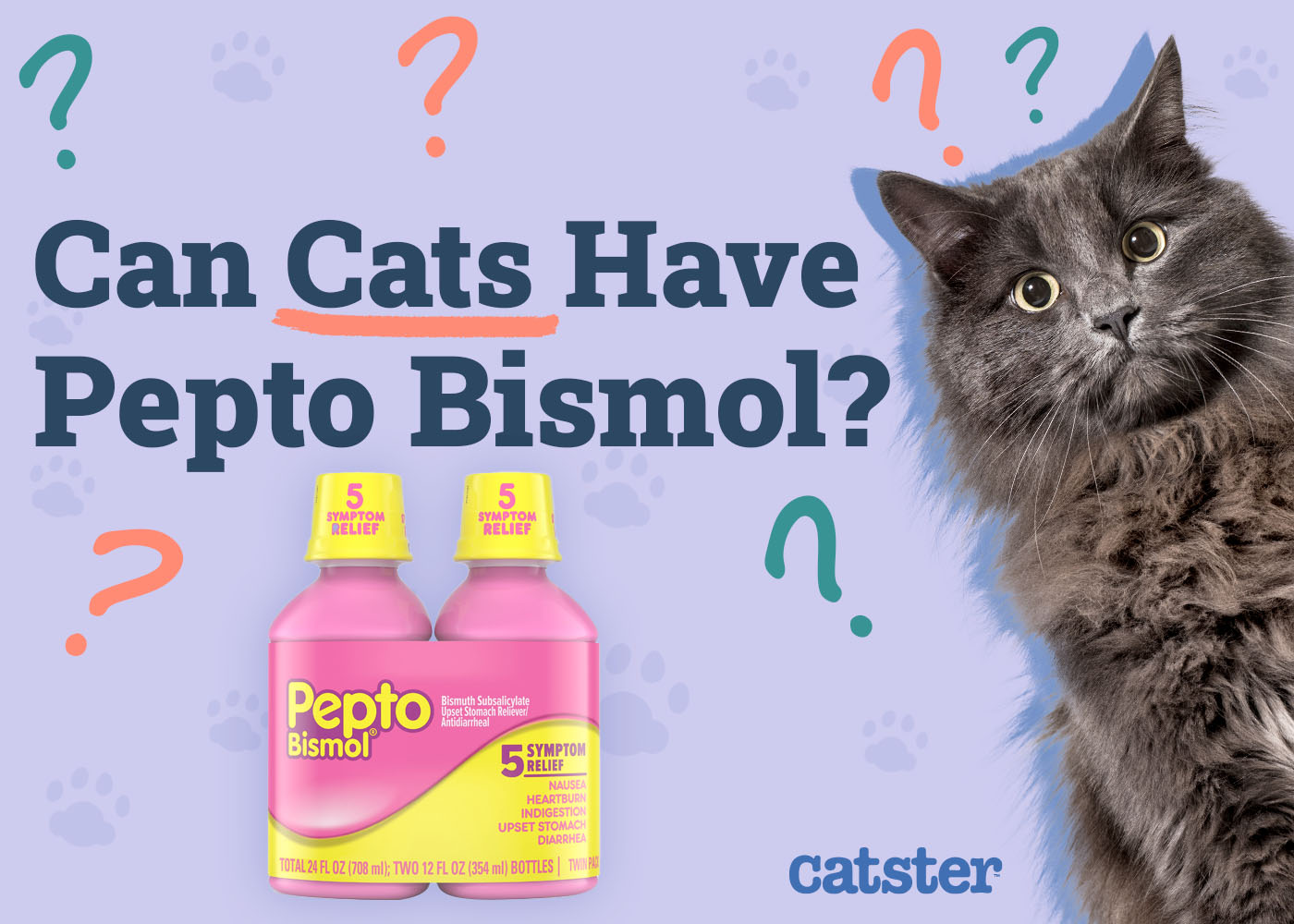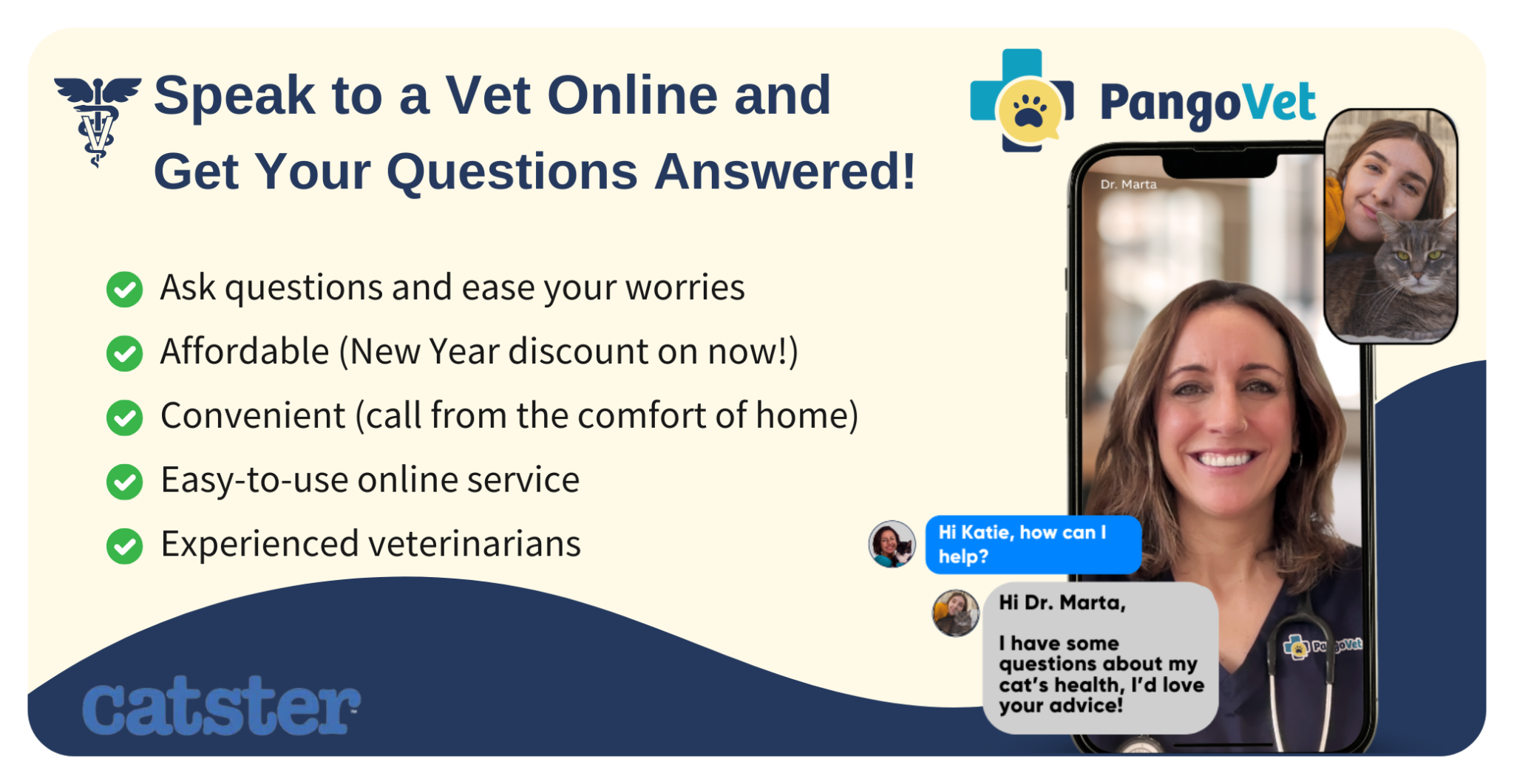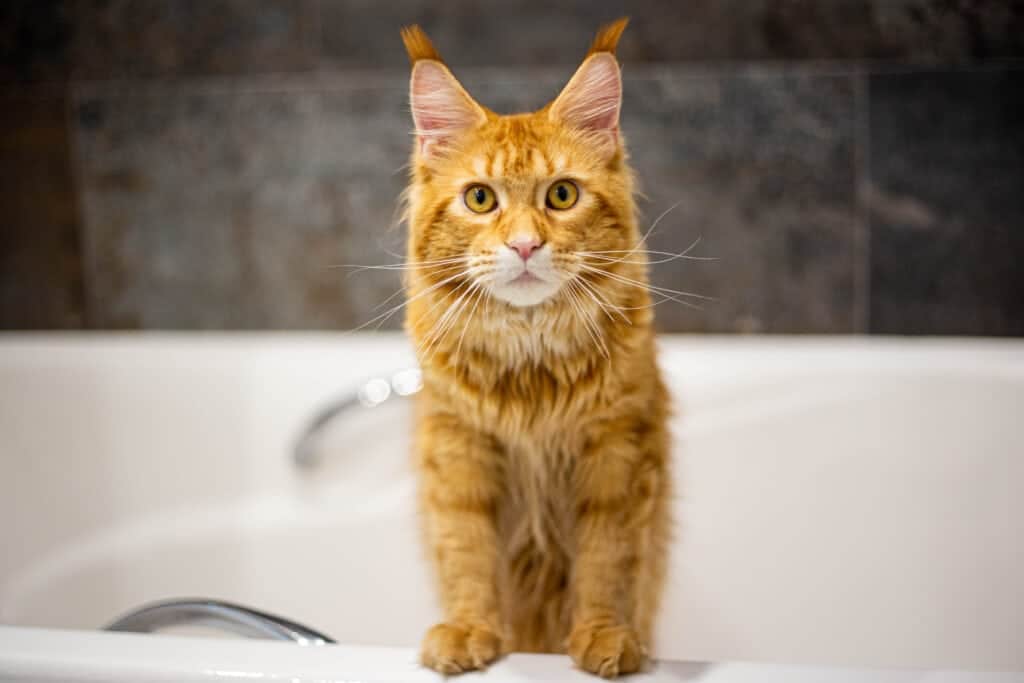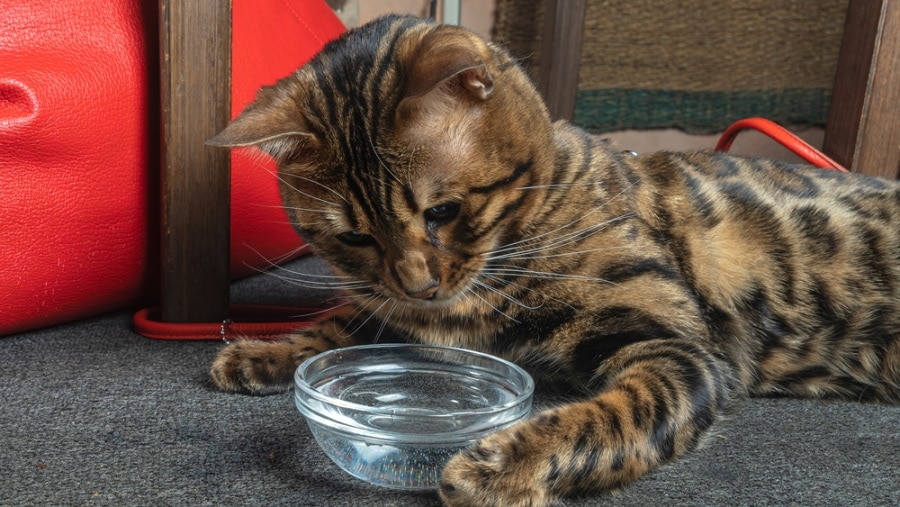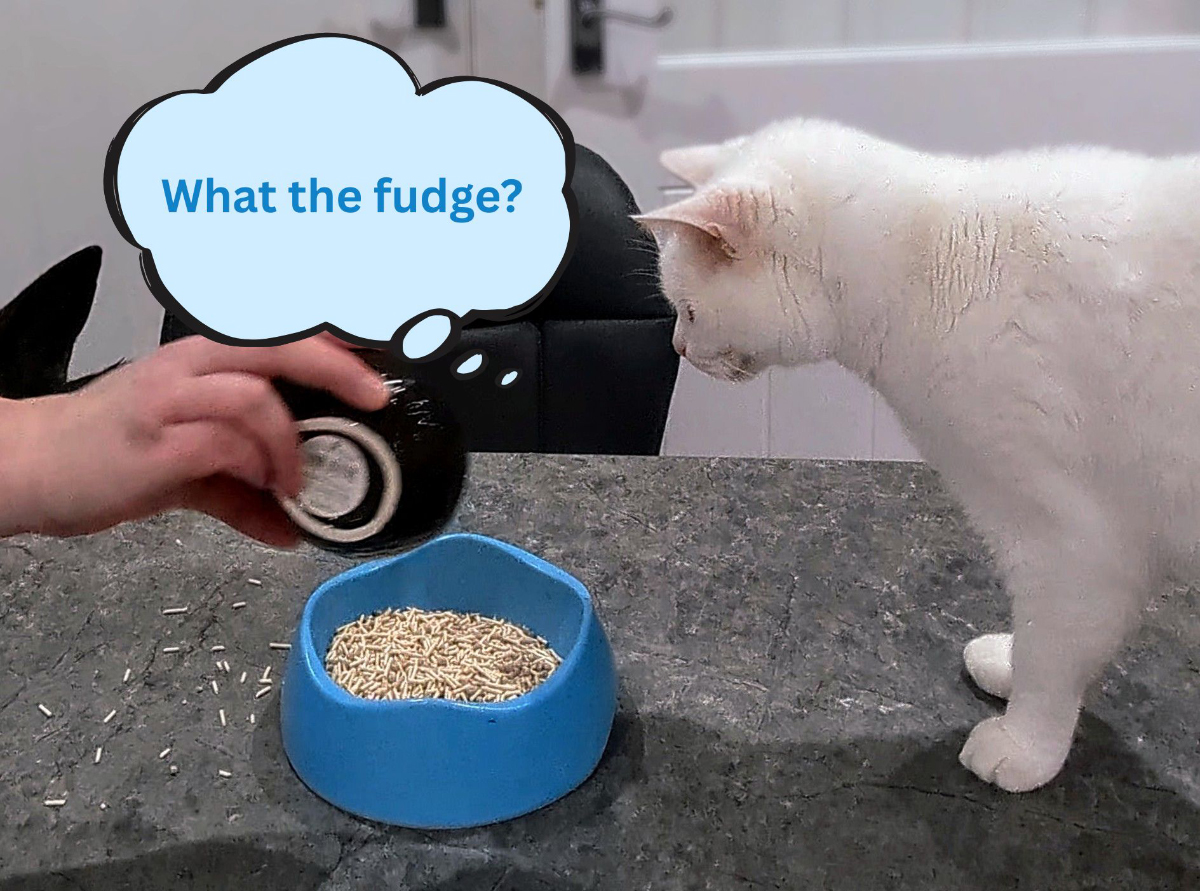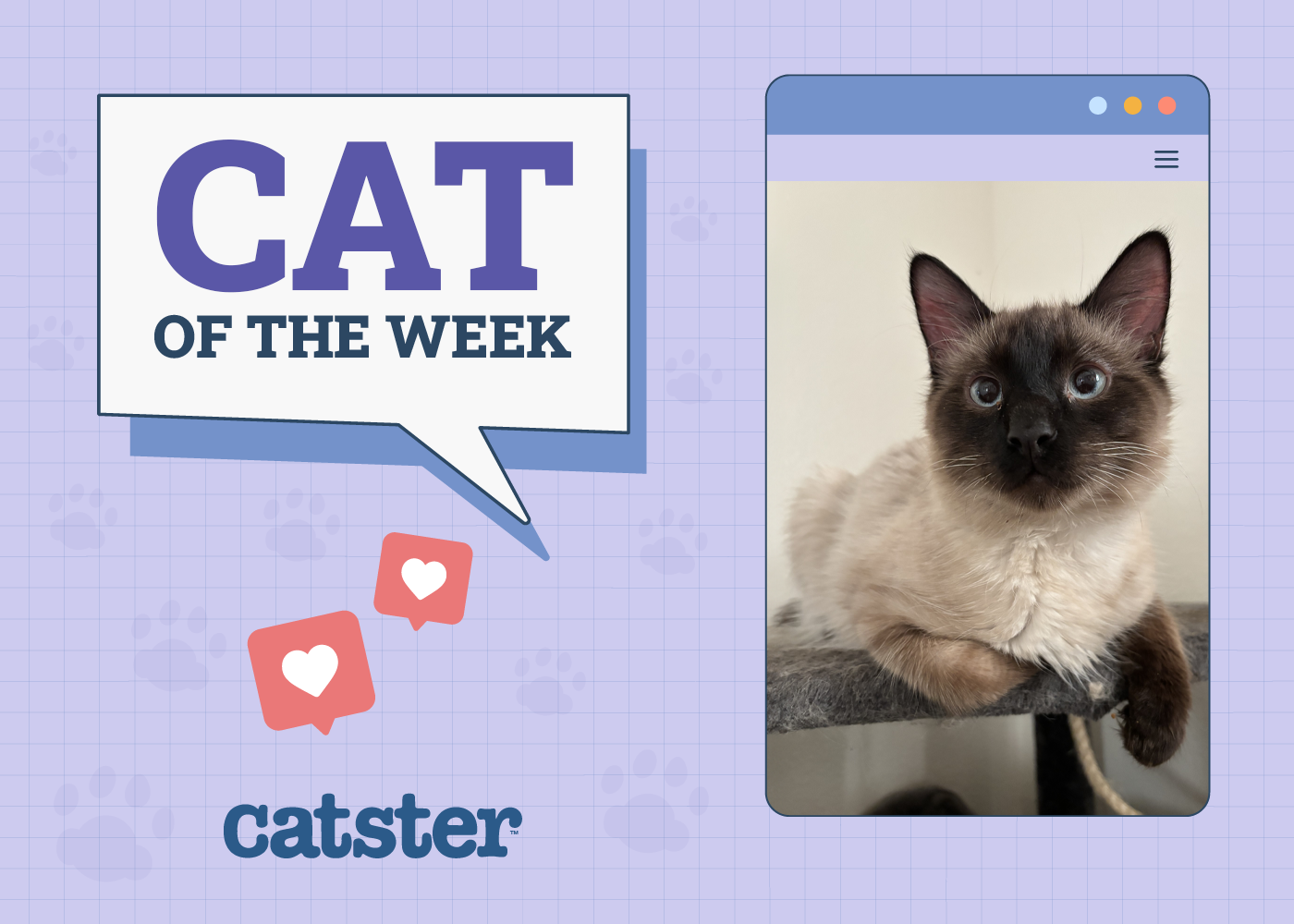Click to Skip Ahead
Pepto Bismol is a medication used to treat an array of digestive symptoms in humans—as the jingle goes, “when you’ve got nausea, heartburn, indigestion, upset stomach, diarrhea…” Pepto Bismol seems like a wonder drug for these unpleasant issues, and cat owners may wonder if they can give their cat Pepto Bismol for similar problems. Is Pepto Bismol safe for cats? The answer is a resounding no. Pepto Bismol is unsafe for cats, and the ingredients are downright toxic.
In the post, we’ll discuss the dangers of Pepto Bismol for cats and why it must be avoided at all costs. We’ll also discuss what you can do instead should your cat show signs of digestive issues.

What Exactly Is Pepto Bismol and How Does it Work?
Pepto Bismol is one of a few brand names for a medication called bismuth subsalicylate, which can also be found in similar over-the-counter medications, such as Kaopectate, Kola-Pectin, Kapectolin, and Diotame, for minor digestive issues in humans. It’s made of several compounds and effectively relieves human heartburn, acid reflux, nausea, indigestion, and diarrhea.
These drugs work by potentially inhibiting bacterial growth, as well as reducing inflammation and decreasing fluid loss into the bowel. This medication is pink in color and comes in tablet form or liquid.
Why Can’t Cats Have Pepto Bismol?
So, can you give a cat Pepto Bismol? Pepto Bismol may be a good way to get relief from digestive issues in humans, but it’s toxic to cats. But how? Pepto Bismol contains salicylates, which are similar to aspirin and in cats can cause liver failure, anemia, and ulcers. The danger lies within the salicylates Pepto Bismol contains. Cats cannot metabolize salicylates in the same way humans can, or dogs, for that matter. The result is a build-up of toxins because a cat’s body cannot eliminate the drug quickly enough, which can lead to aspirin poisoning.
If you are concerned or have questions about your cat’s health, there are services that allow to you speak to a vet from the comfort of your own home.
If you need to speak with a vet but can't get to one, head over to PangoVet. It's an online service where you can talk to a vet online and get the personalized advice you need for your pet — all at an affordable price!

What Are the Signs of Aspirin Poisoning in Cats?
Aspirin poisoning in cats is serious and requires immediate medical treatment. However, it may take time for signs to appear, depending on how much of the medication was ingested. If you suspect your cat ingested this medication, contact your vet or the pet poison helpline ASAP.
The most common side effect in cats include ulceration and irritation of the gastrointestinal lining, which can lead to blood loss.
- Weakness
- Depression
- Lip licking (associated with nausea)
- Pale gums
- Dark, tarry stools
- Decreased appetite
- Vomiting
- Diarrhea
- Abdominal pain
- Fever
- Wobbly gait
- Increased respiratory rate
What to Do if Your Cat Has Digestive Issues
If you were ever tempted to grab a bottle of Pepto Bismol or some other OTC medication for your cat’s upset tummy, we cannot advise doing this. The first step should be contacting your veterinarian immediately to advise on what’s going on with your cat.
Your vet may ask you to bring your cat in for an examination or tell you safe options to try at home over the phone. However, it’s crucial to rule out serious possibilities that could be causing the signs, such as pancreatitis, kidney issues, or even cancer, which is why it is more plausible and likely that your vet will ask you to bring your cat in for an exam.


Conclusion
If your cat is experiencing gastrointestinal issues, a number of factors could be the cause, with some factors being more serious than others. That’s why it’s best to contact your vet right away should your cat become ill. The issue could be as simple as a food allergy or parasite, or it could be something more serious, like kidney/liver failure or cancer.
Your vet can perform specific tests to find the root of the problem for appropriate treatment. We advise never to give your cat any OTC medication without your veterinarian’s approval, which also goes for Pepto Bismol.
Featured Image Credit: siam.pukkato, Shutterstock

